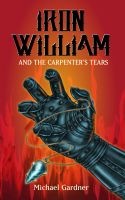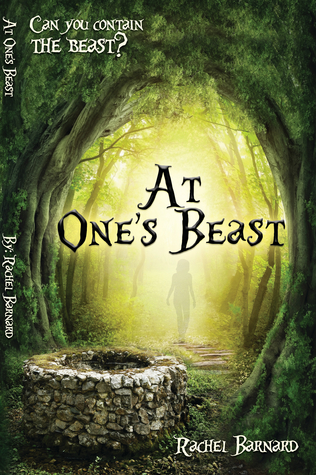 Review:
Review:
Descent into Mayhem
by Bruno Goncalves
Genre: Hard military SF
The highlights:
Bruno Goncalves is, simply put, a find. Comparisons to Heinlein's Starship Troopers are justified. The only thing is, Goncalves may actually be better - once the little editing issues are sorted out.
A super-earth lost colony; military conflict featuring giant mechanized "Suits"; superb realism in world creation, technology, SF military and social organization and behaviour. How often do you get all those from one author?
Discussion:
Toni Miura is a farm boy who gets tired of his family telling him how to live, and making decisions about his future. So he joins the army. If you've ever been in the army, I won't need to tell you to chuckle at this point.
Toni is a great protagonist - gifted, but also flawed. He has good instincts and good aptitude, but he's not prescient and he makes mistakes. His squad mates are sketched more sparingly, but still well drawn, with the possible exception of Ian Templeton whose motives are unexplained, at least in this first book.
Partially genetically adapted human colonists on the super-earth planet Capicua have had no contact with Earth or anyone else for centuries. Now an armed expeditionary force arrives to reclaim Earth's 'territory'. The shocked colonists fight back. Toni and the other recruits picked a bad time to join the army. They're not even half-trained when Bad Things begin to happen, but they have to do the best they can with what they've got.
Goncalves is a tough writer. Characters get hurt, and they get killed. Just as in war, there are no favourites and no one has a charmed life. The reader really does not know who will die next, or how.
The book starts with a prologue describing combat action which takes place twenty years earlier. I suspect the importance of this will become clearer in Goncalves' sequel (see the Interview below!).
Capicua's boot training, and selection of Suit driver candidates, is outstanding. It reflects the standard military method, but it is expertly applied in the SF setting of Capicua. After two hundred years of peace, the armed forces are not exactly in a high state of readiness to repel invaders; nevertheless the actions of the invaders push the Capicuans into armed conflict.
The invaders from the Earth Federation are also very well drawn: real characters, with different cultural values and customs from the Capicuans. One feels a connection with the invaders as well as with the hard-pressed defenders. This is particularly so in the case of Kaiser, but also with the ruthless Lippard.
What is truly impressive is the hard SF nature of this book. Goncalves has taken the trouble, and done the research, to create an unusually real-world feel in his creation.
The only criticism I can level is the lack of professional editing. There are occasional typos or incorrect word choices - but the book is so good that they are unable to detract from the pleasure of reading a great hard SF story. That's why, in spite of this, I still give the book five stars.
Fans of hard military Science Fiction, salute your new commander!
Interview with the author (I believe it's his first!)
I was so impressed that I contacted Bruno and asked him for an interview, and here it is:
Question: (In a very anxious tone) Will we see Toni in the next book?
Bruno: Toni’s place in the
Capicua world is safe. As one might realize from Descent into Mayhem’s ending, Toni’s gotten himself into a load of
trouble; there are some clans out there you just don’t mess around with… On the
other hand, his own family could hardly be considered a pushover (hint, hint).
Q: What gave you the idea for the story?
Bruno: The idea popped into my
head back in 2008. At the time I was a rookie police officer in Lisbon and had
a small room for myself two floors above my precinct. I had no television, but
I did have a computer with an
internet connection, and my interest in space-travel and colonization had taken
me into exoplanet research.
We’re living in very
interesting times, with more than 1800 exoplanets discovered as of this month.
This feverish phase of planetary discovery was beginning to take off in 2008,
and it made me wonder: if we happened to fail in discovering faster-than-light
travel, what would be the social and political consequences of Mankind‘s
Diaspora among the stars?
Q: Was the 'Mechwarriors' series or similar books part of your inspiration? Are
you a fan of those books, and if so which authors do you particularly like?
Bruno: “Giant Freaking Robots”
have always been a particular fetish of mine. When I listen to epic music and
begin to smile, I’m imagining them running amok. It all began with a Japanese
anime franchise known as Mobile Suit Gundam, they’re the culprits. After that I
couldn’t get enough, I consumed Robert Heinlein’s Starship Troopers, and then
joined my army buddies in all-night LAN parties where we’d face off against
each another in Mechwarrior 4 and club each other to death. (David: As a Mechwarrior Mercenaries vet myself, I grin knowingly).
After a while I began to
design one of them; it needed to be something real in my mind. I imagined an
aluminum-lithium alloy frame, pneumatic artificial muscles, a closed
compressed-air system to actuate them and a gas turbine to power it all. I
could go on but, as anyone who has read my book already knows, the design of a
bipedal APC with unique all-terrain capabilities ended up making its way into
my book.
Q: You seem to have done a lot of scientific and medical research for this. Or
did you just make it all up as you went along?
Bruno: As an inveterate fan of
hard science fiction, I find myself unable to refer to technical, technological
or scientific matters without grounding them in as much science fact as
possible. Much of the time I spent researching the current state-of-the-art and
speculating on the technological future. I’ve realized it may all be a little
unnecessary for some readers but, on the other hand, Descent into Mayhem was written for those die-hard fans of the
military science-fiction genre.
Q: Why did you choose a super-earth?
Bruno: The star Gliese 667C
exists! And, curiously enough, Capicua does as well, although its present name
is Gliese 667Cc. And it happens to be a super-earth with an Earth Similarity
Index of 0.85, which means it orbits within the Goldilocks zone of its parent
star with a period of 28 days. Sound familiar?
Oddly enough, I only
located Capicua around Gliese 667C upon its discovery in 2011, having before
then “planned out” a super-earth planet so as to get into the necessary
adaptations potential colonists would have to face. That part was a lot of fun.
Q: Why do you write?
Bruno: My first reason for
writing was as a cure for boredom and an outlet for my overactive imagination.
A cop on patrol shouldn’t be spending his time staring up at the stars, should
he? But writing only made it worse as the “world” I was building began to take
shape. I’m still surprised no-one took a shot at me in those moments.
Nowadays I write with a mission: to be successful for the sake of my family.
Q: Why did you publish this when it *clearly* still needs a final edit?
Bruno: As someone who’d never
read a self-edited Indie book and come face to face with the curse of the stealth errors, I believed
it within my grasp to carefully edit my manuscript up to publishable status. I
read all the right blogs (or so I thought) and rolled up my sleeves and, after
doing three edit runs (grammar, paragraph, structure, etc…) I became
tentatively convinced that it was ready.
I realize now that, due to
the very nature of the human mind, editing should be done by someone other than
the author. That person should be a professional.
Q: Do you hate your characters, or are you just a hard-nosed storyteller?
Bruno: I can’t envision an author
who hates his characters. Even the villains are interesting, in their own way.
I have also never considered myself to be hard-nosed (although maybe I’m making
the same mistake as when I thought I could edit my own book). Thing is, people
are imperfect. I’d never create a character possessing only positive traits and
no negative ones.
As someone who spent four
of his five years in the military training people to soldier, I’ve had to get
to understand them in all their complexity. By the end of three months of
training I was expected to evaluate them in accordance with five basic
criteria.
Weigh the souls of more
than five hundred people. Use five criteria with a one-to-four scale. Mission
impossible. The extraordinary diversity of people involved, their complexity
and, mostly, the way their strongest points were sometimes counterbalanced by
horrid weaknesses, this was my army experience. Add to that five years in a
patrol-vehicle stalking the streets of Lisbon.
I could never have
imagined my characters in any other way.
Q: Don't you think you should put more effort into rounding out secondary and
tertiary characters? (Sometimes I can be nasty - they're not that bad.)
Bruno: Ouch, that’s a zinger,
although I might have been asking for it. We have a saying in the army. Terrain
is a dictator. Well, in my opinion, narrative’s a bit like that too. I follow
the narrative of the story in accordance with a general plot, jumping from one
POV to another to tell my story as best as I can. Sometimes this allows me to
get into certain characters in greater detail. However, sometimes it doesn’t.
I’ve realized by now that there are many, many different ways to write a book,
some better at capturing the essence of secondary characters than others. It’s
not only a matter of method, though. I realize now it’s also a matter of skill.
Perhaps as I improve at
writing I’ll be able to do better. I truly hope so.
Q: Tell us about your next book, and *rather urgently* when
is it coming out?
Bruno: Tears of Gliese is my
sequel to Descent into Mayhem, and
it’s presently more than nine-tenths of the way through its first draft. If the
first book gave people an impression that there are two sides to the conflict,
the second will make it clear that it’s never that simple. It’s in times of
peace that the seeds for war are sown, and there’s been peace in Capicua for a
very long time. Two hundred years of enforced peace can generate a lot of
rancor. A much closer look into how Gliese 667Cc was terraformed, how it was
christened and how the seeds for internal conflict were in fact brought over
from Earth during the colonists’ voyage are explored.
And there’ll be more on Toni and Kaiser, of course.
Last word
Bruno has indicated that he hopes to release Tears of Gliese early in 2015, so hopefully we won't have too long to wait! Personally, I think he's going to become a big name in hard SF. When he does, remember I said it here first!
What I'm reading now:

Iron William and the Carpenter's Tears
by Michael Gardner
I recently read a beta sample of the prequel, which was excellent.
Ataxia and the Ravine of Lost Dreams
by Rachel Barnard
Thank you, Rachel!
Added to my To-Read List:
Too busy reading right now to add any more!
 by Rachel Barnard
by Rachel Barnard







